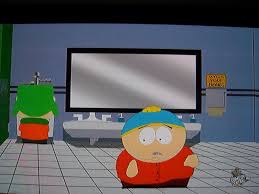Yeah, we used to have students loitering around bathrooms, but figured out fairly quick that didn’t work.
So we would train co-workers to be the spies of shit (on people’s hands).
Guess others have figured that out too.
 Although there is a cultural factor. Amy don’t care much if I fart in Kansas or Australia, but in France, that’s a no-no, and I must button my shirt up appropriately and take showers so I don’t look like a homeless person, even though snotty French types would walk over children to get to wherever they were going that was so important.
Although there is a cultural factor. Amy don’t care much if I fart in Kansas or Australia, but in France, that’s a no-no, and I must button my shirt up appropriately and take showers so I don’t look like a homeless person, even though snotty French types would walk over children to get to wherever they were going that was so important.
To them, I fart in your general direction.
When healthcare providers know they are being watched, they are twice as likely to comply with hand hygiene guidelines. This is in comparison to when healthcare providers do not know someone is watching, according to a new study being presented at the 43rd Annual Conference of the Association for Professionals in Infection Control and Epidemiology (APIC). This phenomenon—called The Hawthorne Effect—impacts the ability to capture accurate human behavior because individuals modify their actions when they know they are being observed.
The infection prevention department at Santa Clara Valley Medical Center in San Jose, California measured the differences in hand hygiene compliance rates when healthcare workers recognized the observers and when they did not. The study found a difference of more than 30 percent in hand hygiene compliance depending on whether or not they recognized the auditors. “This was not a result that we expected to see,” said Nancy Johnson, MSN, CIC, infection prevention manager, Santa Clara Valley Medical Center. Infection preventionists validated the audits conducted by hospital volunteers, which showed no difference in the group’s observations.
“The level of hand hygiene compliance when staff did not know they were being watched was surprising,” said Maricris Niles, MA, infection prevention analyst, Santa Clara Valley Medical Center, California. “This study demonstrated to us that hand hygiene observations are influenced by the Hawthorne Effect and that unknown observers should be used to get the most accurate hand hygiene data.”
Five infection prevention nurses (known to staff) and 15 hospital volunteers (unknown to staff) collected 4,640 observations between July 2015 and December 2015. The volunteers were trained in a two-hour course on the importance, identification and reporting of hand hygiene compliance.
Nancy Johnson stated that this data was recognized by our leadership. “We have rolled out many changes as a result, including an organization-wide, hand hygiene improvement plan that is actively supported by our leadership team. Moving forward, the medical center’s monitoring will be conducted by unknown observers.”
